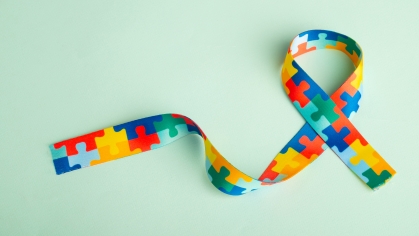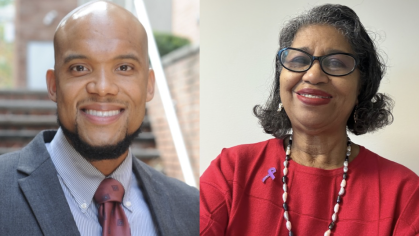Edward Alessi is an associate professor at Rutgers School of Social Work and Chancellor’s Scholar of LGBTQ Mental Health, Trauma, and Resilience. Dr. Alessi's research and scholarly interests include lesbian, gay, bisexual, transgender, and queer (LGBTQ) mental health issues and clinical social work practice, and his research aims to improve (a) understanding of stress and trauma among sexual and gender minority (SGM) populations, and (b) enhance clinical practice with SGM and other marginalized populations. Dr. Alessi gives a glimpse into some of the research relating to Inclusion, Intersectionality, Diversity, Equity and Advancement (IIDEA) that he's recently conducted.
Tell us about an article or dissemination effort that relates to IIDEA that you’ve worked on recently.
I have a series of articles published on LGBTQ+ migrants in South Africa. These articles highlighted the lived experiences of queer migrants there, including the intersectional stigmas that they experienced, and their negative impact on integration, health, and wellbeing.
Alessi, E. J., Kahn, S., Giwa, S., & Cheung, S. (2020). “Those tablets, they are finding an empty stomach:” A qualitative investigation of HIV risk among sexual and gender minority migrants in Cape Town, South Africa. Ethnicity & Health. Advanced online publication. doi:10.1080/13557858.2020.1817342
Alessi, E. J., Greenfield, B., Yu, M., Cheung, S., Giwa, S., & Kahn, S. (2021). Family, friendship, and strength among LGBTQ+ migrants in Cape Town, South Africa: A qualitative understanding. Journal of Social and Personal Relationships, 38, 1941-1960.
Alessi, E. J., Kahn, S., & Pilirani Chikalogwe, V. (2021). Identifying and addressing the impacts of COVID-19 on LGBTQ+ migrants in South Africa: A preliminary look. Georgetown Journal of International Affairs. https://gjia.georgetown.edu/2021/02/01/identifying-and-addressing-the-impacts-of-covid-19-on-lgbtq-migrants-in-south-africa-a-preliminary-look/
Why did you conduct this study?
These studies provided the opportunity to engage in capacity building with a community organization in South Africa that serves LGBTQ+ migrants. In addition, the studies provided the preliminary data needed to develop and test an HIV-prevention group prevention intervention for LGBTQ+ there. The preliminary data were used to apply for a Rutgers Global Health Seed Grant that enables us to create the intervention protocol. The next step is to test it in South Africa--hopefully in the Spring 2022.
Although LGBTQ+ migrants experience challenges like other migrant and LGBTQ+ populations, their multiple marginalized identities make them an especially vulnerable subgroup of both the migrant and LGBTQ+ populations. Studies demonstrate that LGBTQ+ migrants are at high risk for HIV in host countries, and there is a critical need for this type of intervention in South Africa--HIV prevalence is among the highest in the world (UNAIDS 2019; Avert 2020). Further, in 2019, there were 4 million international migrants in South Africa, the most of any African country (International Office Migration [IOM] 2020); reports indicate that many international migrants in South Africa are likely to be LGBTQ+ (ORAM 2013). This is, in large part, due to South Africa’s constitutional guarantees of nondiscrimination based on gender and sexual orientation (ORAM 2013), which attract LGBTQ+ people from at least 30 African countries, many of which criminalize same-sex sexual behavior and expose LGBTQ+ individuals to human rights violations (Mendos 2019).
However, upon arrival in South Africa, SGM migrants experience a constellation of structural and psychosocial challenges that coalesce to heighten vulnerability to HIV risk.
How does it connect with the principles of IIDEA?
We are accounting for a population who faces intersectional stigmas that cause numerous health inequities. At the same time, they do not receive the attention they need to reduce these inequities. Being marginalized because of one's sexual or gender identity, race, immigration status, and social class requires that structural conditions increases health disparities and reduces opportunities for resilience.
What is the value of this work? Why is it important?
This intervention situates the challenges of LGBTQ+ migrants as existing externally rather than because of individual deficits or psychological problems. More specifically, using knowledge building exercises and arts-based methods, the intervention intends to re-situate racism, homophobia, transphobia, xenophobia, and classism as structural issues that, if addressed, would allow LGBTQ+ migrants to make decisions that not only empower them but also facilitate their resilience.
This story was created in partnership with Rutgers School of Social Work's Inclusion, Intersectionality, Diversity, Equity, and Advancement (IIDEA) Committee in support of our commitment to diversity, equity, and inclusion.



